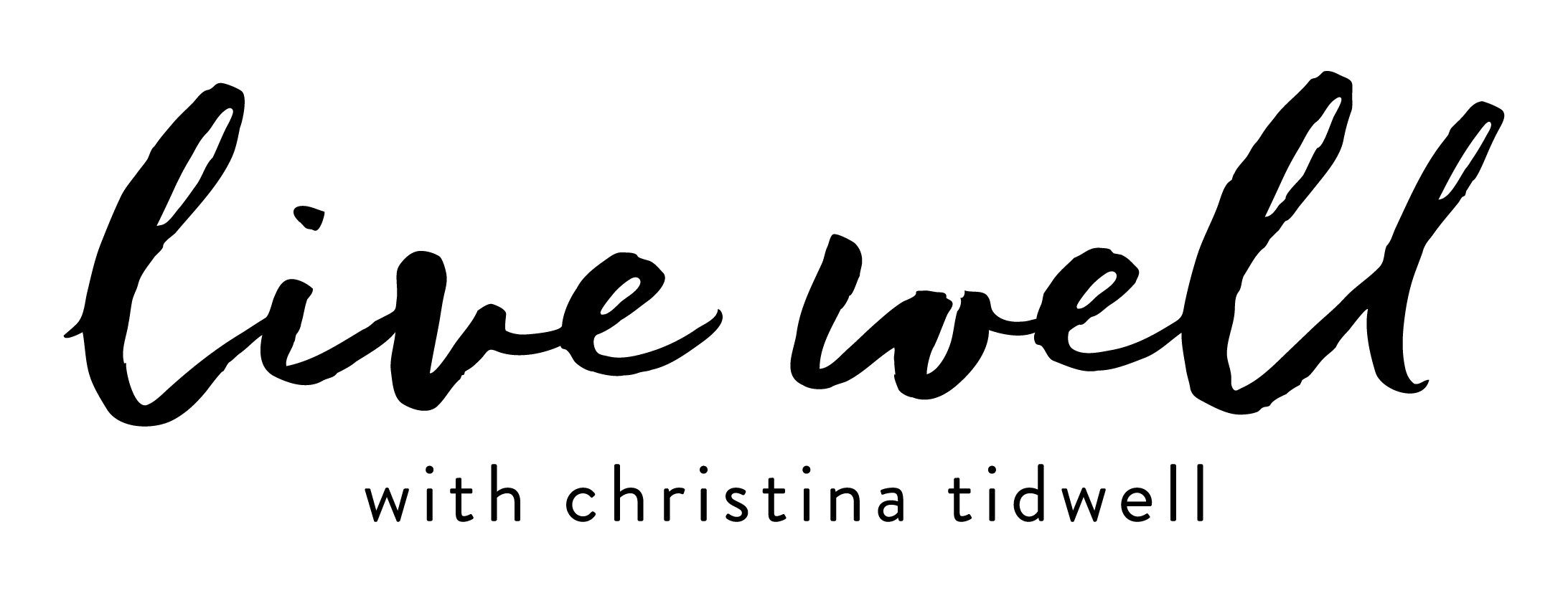LIVE WELL PODCAST | Episode #16 | Does everyone with autoimmune disease need to avoid the same foods?
Does everyone with autoimmune disease needs to avoid the same foods? I get asked this question a lot so I addressed it in this short podcast episode! Listen or read below to learn about the top three inflammatory foods and the importance of bio-individuality in finding a diet that works for you.
LISTEN BELOW (AND DON'T FORGET TO SUBSCRIBE SO YOU'LL NEVER MISS OUT!)
Click here to listen in iTunes
Click here to listen in Stitcher
Or if you’d like to play the episode right now in your browser, use the player below:
Show Notes:
0:00 Intro
0:41 Does everyone with autoimmune disease need to avoid or eat the same foods?
1:27 3 things need to be in place for the development of autoimmune disease:
Genetics
Intestinal permeability
Microbiome
3:00 What should you eat if you have an autoimmune disease?
Bio-individuality
3:30 Most inflammatory foods for autoimmunity and why to avoid each one:
Sugar: Increased sugar consumption leads to issues with blood sugar regulation, which can look like insulin resistance, high blood sugar levels, hypoglycemia, and diabetes. Regulating blood sugar levels and maintaining insulin sensitivity are critical to regulating the immune system and reducing inflammation.
Gluten: A component of gluten found in grains (wheat, barley, and rye specifically) known as gliadin is the concern. Specifically, gliadin fragments cross the gut barrier, and once inside the body, these protein fragments interact with the gut associated lymphoid tissue, stimulating the release of inflammatory cytokines and activating cells of both the innate and adaptive immune system. Through this process, gliadin causes damage of gut enterocytes, which results in the creation of holes in the gut barrier through which various contents of the digestive system can leak into the body (leaky gut). Inflammation is triggered by gliadin fragments that cross the gut barrier, as well as by other partly digested food proteins, gut bacteria, bacterial fragments, and waste products, like toxins, crossing over. This further activates the immune system, causing a vicious cycle of inflammation and gut-barrier damage, and is why the gluten-containing grains (wheat, barley, and rye) are typically the most problematic for those with gut issues or autoimmune disease.
Dairy: Dairy is a common allergenic food, affecting between 1–17% of children and 1–4% of adults presenting with IgE-antibodies. For these people, even trace proteins in ghee can be a problem. Additionally, 25–75% of people (depending on ethnicity) are unable to digest lactose, a sugar found in milk. Next, dairy products contain protease inhibitors that may contribute to intestinal permeability. Dairy products are highly insulinogenic, which may contribute to inflammation and insulin resistance; they contain active hormones that have the potential to alter human hormone levels (like IGF-1); and they increase mucous production, which can irritate the gut lining and hinder nutrient absorption [1]. I should note that good quality, whole fat dairy can be a totally healthful food for some people! Just when troubleshooting digestive issues it can be beneficial to remove it for a period of time to fully understand how it affects you.
9:08 Why you might not actually want to jump into a restrictive healing diet
10:00 The benefits of working with someone to get a plan tailored to you individually
12:36 Outro
If you loved this episode, I'd be honored for you to give me a rating on iTunes. This helps me to get content out to others who are interested in getting control of their health through diet, lifestyle shifts and personal empowerment.
Are you dealing with symptoms of chronic fatigue, brain fog, autoimmune disease, pain or digestive issues?
You’ve gone to doctor after doctor. You’ve received some answers, have started on medications and notice some relief (thank goodness!) but are still left feeling exhausted, stressed, inflamed and not fully yourself?
Or maybe every test has come back “normal” and your practitioners have told you that there isn’t anything they can do, to come back when things get worse, or to simply manage your stress better?
If yes, then you are someone who would benefit form 1:1 holistic health coaching.
Health coaching is a necessary extension of the health care system in that together we have more time to uncover issues, implement strategies and assess outcomes together. Autoimmune disease is complex and to address it we need to come at it from all angles (pharmaceutical therapies from your doctor while also focusing on root cause factors like gut health, diet, sleep and stress). I offer accountability, a knowledgeable resource and most importantly support.
I always offer free 30-minute discovery sessions to get clear on your major health concerns and what’s standing in your way. Click the button below to set up your free consultation and we can create a plan of action specifically for you.



